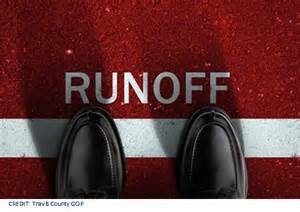I’ll admit right up front that this rant isn’t terribly important, what with Russian influence on our electoral process and the possibility that the president of the United States colluded with the former (or current?) Evil Empire.
I see all those “Ginger Nelson for Mayor” signs around our southwest Amarillo neighborhood. I hope she wins against her two opponents. As much as that, though, I hope Nelson wins outright on May 6 — and avoids having to campaign again against the second-place finisher, whoever it might be.
State law requires runoff elections when candidates fail to reach an outright majority the first time around. It’s true in our partisan primary elections, although not in our general elections; Rick Perry, you’ll recall, was re-elected Texas governor in 2006 with about 39 percent of the vote in a three-way contest.
These municipal and county elections require candidates to obtain majorities. Pluralities — even healthy ones — aren’t good enough.
The way I see it, if we can elect presidents of the United States without clear majorities, surely we can elect lower-level politicians with them, either.
I do understand that presidents need a majority of Electoral College votes to win, so perhaps this particular comparison isn’t entirely appropriate. We still elected a president in 1992 who received 43 percent of the popular vote.
Runoffs end up costing the public a bundle of money, particularly when the turnouts are beyond abysmal. It’s insulting enough in Texas and many other states — primarily in the South — where turnout is pitiful in these local and/or partisan primary contests.
To add insult to it all, we have runoff elections where the dismal turnout declines even more while saddling taxpayers such as you and me with the bill.
I get that we seem to love elections in Texas. If only we would participate in numbers that testify to such affection. So, let’s not do it quite so often.
Get rid of runoffs.
